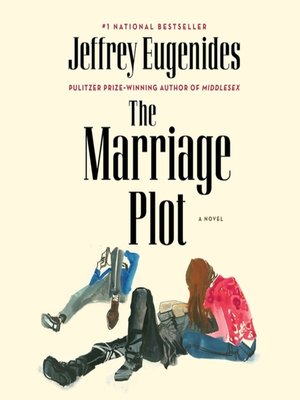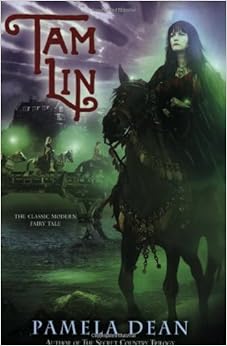Even so, many of the campus novels I've read stuck with me, to the point where I tend to ask if people have read certain books just so I can have someone to discuss them with. And thus, an obsession was born. I'm on the hunt for the perfect campus novel. Something that doesn't feel overly pretentious, has likable characters, and that perfectly calibrated studious atmosphere that makes campus novels so fun to read.
This is the first installment of a series of posts where I'll share my thoughts on the campus novels I read, and what better time to start than August and September, when, for the first time in my life, I'm not going back to school.
Below are the books that got me into the genre; the good, the bad, and the ones I wanted to throw across the room.
1. The Secret History by Donna Tart
If you google "campus novels" this will inevitably turn up. It's one of the most popular campus novels of all time, and despite my personal reservations, I have to admit that it deserves to be on the list. The Secret History follows Richard Campden, a California boy who moves to New England to go to an elite private college. There, he falls in with a mysterious bunch of classics majors under the influence of a morally corrupt professor. What follows is a slow burning, volatile, maddeningly illusive story that tells you something is going to happen only to have it completely shatter your expectations.
I loved the first half of this book. The atmosphere is perfectly eerie: you feel the old-world sophistication and the grandeur of the campus buildings; the isolation the characters face during a particularly snowy winter; that strange, warm quality found in oaken rooms filled with books. During the second half, though, it started to fall apart for me. Characters who I found flawed but fascinating became almost unbearable. Moral questions posed in the first half were batted away as easily as flies. As the characters' lives spiraled downward, so did my enjoyment of the book.
And yet. And yet. I can't stop thinking about it. Images from The Secret History have stayed with me long after I gave it two stars on Goodreads. I find myself wanting to discuss it with everyone I meet. And what is that if not the sign of a particularly good book? My final verdict: The Secret History is well crafted. It is an undeniable feat of suspense and tension, and a fascinating portrayal of privilege gone wrong. By the end, you may just want to hurl it across the room.
2. Fangirl by Rainbow Rowell
This book could not be more different than The Secret History. They might very well be polar opposites. Fangirl follows Cath, a freshman in college who is a super-fan of Simon Snow, a book series with overt similarities to Harry Potter. Cath is extremely shy, and is more inclined to stay in her dorm room and write fan fiction than go out and socialize. But a loner can't stay that way forever. With the help of a judgmental (and yet oddly likable) roommate, a hard-ball professor, and of course, a guy, Cath begins to come out of her shell.
Fangirl is light and funny, but also a poignant portrayal of anxiety and loneliness. I've heard that some readers are annoyed by how much Cath overthinks things, but if you have that tendency, too, her character will most likely ring true. Rowell is tender with her characters, making you like them despite their flaws, and you delight in all the ways Cath grows, and the tiny steps she takes to being more outgoing, letting more of herself show. Unlike the other books on this list, this is a truly optimistic one, and one of the rare books I found myself grinning at whenever I picked it up. If you're looking to read about a college experience that feels refreshingly realistic and modern with a dose of humor, Fangirl is it.
3. The Magicians by Lev Grossman
The Magicians is often billed as "Harry Potter for adults," but in my mind that doesn't quite fit. Maybe: "Harry Potter if Harry Potter were intensely apathetic and studying magic was not as easy as it looked." That's not to say I didn't enjoy this book. Like The Secret History, The Magicians left me with a lot to think about. The book follows Quentin, a high school senior who grew up reading a Narnia-esque series of books about the magical land of Fillory. Upon graduating, he is unexpectedly accepted into Brakebills, a - you guessed it- magic school. What follows is an erratically paced journey through their four years at Brakebills, and their struggle to survive after returning to the real world, where magic is an intensely useless skill. If you're looking for the in-depth, perfectly plotted world of Harry Potter, this is not that book. But, if you're curious about how someone else might conceive of a magical school where learning magic takes patience, effort, and skill (and failure is frequent), and you like reading about the struggles of disillusioned youth, this is the book for you. That may sound flippant, but there's a lot of substance here, and it stayed with me long after I read the last page.
This is the only book on this list that I flat-out didn't like. I read it in my marriage plot class, right after reading five or six marriage plots, from Jane Eyre to Emma. This book is supposed to be a semi-modern take on the marriage plot structure, but I found it to have the same constricting effect on its characters as the marriage plots we read in class. It follows Madeline, Mitchell, and Leonard as they are in their last year at Brown University during the 1980s. The book opens with Madeline, but spends a lot of time with Madeline-obsessed Mitchell Grammaticus (yes, that's his real name *gag*) and manic-depressive bad-boy Leonard. The book seems more concerned with their emotional and psychological journeys than Madeline's. All of the characters are obsessed with the writings of the deconstructionist theorist Derrida, and in its own attempt to deconstruct the marriage plot, it seems only to point out its own shortcomings in being unable to do what its 19th century predecessors could. In short, Jane Eyre is more feminist than The Marriage Plot.
5. Tam Lin by Pamela Dean
This book is still somewhat of an enigma for me. It's billed as a modern re-telling of the sixteenth century Scottish ballad, Tam Lin, but if you're looking for modern/urban fantasy, this is not it. I went into it knowing nothing about the original ballad, and came out of it only slightly more educated. What is interesting, though, is her portrayal of life on a college campus in the 1970's. Her complex cast of characters are interesting and witty, and literary references abound. The joy Dean takes in having her characters quote Shakespeare I think makes up for any pretentiousness - it's obvious that she loves literature and revels in it throughout. At 456 pages, this book is not for the faint of heart, but if you go into it with the right expectations, it's a highly enjoyable read.
6. Prep by Curtis Sittenfeld
I tried to read Prep on the recommendation of my friend Ruth (who usually gives great recommendations), but I just couldn't get into it. However, that doesn't mean that it isn't worthy of being on this list, and a recommendation this emphatic could not go unnoticed. Here's what Ruth has to say:
"Prep is about a girl who lands herself at an elite boarding school, and finds herself very out of place with the wealthy, self-assured people around her. We follow her through her four years at school as she observes the social, racial, and class divides there, and see how she reacts.
Here's why it's good. This is a book that feels authentically high school, with the same cringe moments and awkwardness of being a teenager. Ever small thing seems so big. The book is narrated by an adult Lee, looking back on her high school years, but for the most part you forget she's the narrator. As a teenager Lee is perceptive, sharp, and self-conscious, and has a gift for observing other people and dissecting their actions. She's particularly insecure as a freshman but one of the best parts of the book is going through the 400+ pages and noticing her language and perspective change. She takes action more often, gets better at articulating her own feelings, and acknowledges and is confronted by the limitations of her perspective. The book moves at a pace that makes this really interesting – slow enough for her to feel just the same, but quick enough for you to see her expand her idea of who she is and what she's capable of. Every scene in this book feels uniquely its own, and builds up slowly, with all the nuances of interaction and dialogue of something that happens in real life.
I have so much affection for this book because some of Lee's conclusions, or observations she makes about life, you read them and you think, 'ha, that's kind of funny,' because it's a little melodramatic, or a little oh – high school. But they resonate almost more so because they're acute observations that are sincere and vulnerable, easy to criticize but there anyway. It's that kind of naivety and honesty that makes Prep fascinating to read."
There you have it. I'll keep you updated on my next campus reads, and hopefully I'll find some gems in what (so far) has been a mixed bag. Currently Reading: The Starboard Sea by Amber Dermont






No comments:
Post a Comment